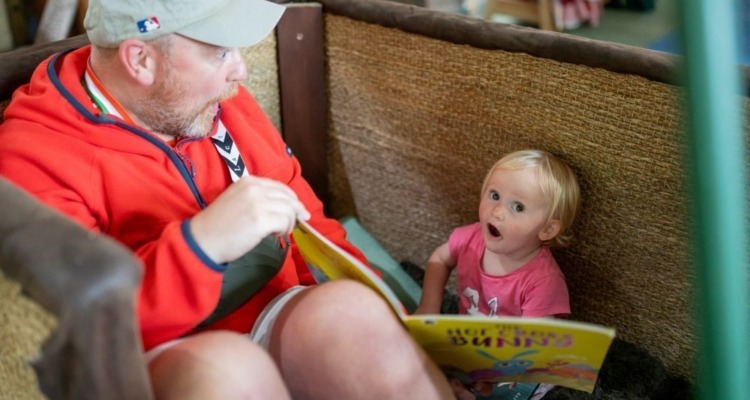Readers of the World: South Africa
 The time has arrived once more to resume our round the world reading trip and get some highly interesting insights into global literature. If you were too late to catch the plane for Charlotte's tour of Canada, you can catch up here - or alternatively, make your way through the entire series so far (and you don't even have to worry about delays...).
The time has arrived once more to resume our round the world reading trip and get some highly interesting insights into global literature. If you were too late to catch the plane for Charlotte's tour of Canada, you can catch up here - or alternatively, make your way through the entire series so far (and you don't even have to worry about delays...).
This time around we're travelling to South Africa, courtesy of current Communications Intern George Hawkins. In particular we'll be looking at one aspect of its literary history: Afrikaans literature.
South Africa has an interesting literary history. Much of this is owed to the fractious history of a county which in the last couple of hundred years has been dominated by very different groups, has fully 11 national languages (with supposedly equal status) and has a long history of violent nationalism and antagonistic relations amongst its peoples.
Afrikaans is a young language (it was only standardised as a separate language in 1875!), and its literary culture is even younger. It was originally an offshoot of High Dutch, spoken in the 17th Century by the first white men to colonise South Africa. Later it evolved into an African language of its own, with identifiable grammatical differences from Dutch, developing linguistically away from its mother tongue, even as the people who spoke it developed their own separate identity as Afrikaners.
Afrikaner literature has always been heavily influenced by the ecclesiastical, reflecting the Afrikaner cultural affinity for the same. As a result it took some time for a tradition of Afrikaner literature to really grow and flourish, first it had to separate itself from Dutch, throw off the shackles of excessive religious influence and contend with the challenges of life in South Africa: many Afrikaners were country people, farmers and hunters, meaning it was often difficult to develop the kind of civil society that promotes a healthy literary culture. Eventually though, adversity fostered a thriving sense of identity and a cultural expression through books. Traumatic events such as the Second Boer War (in which the British Army, through incompetence rather than malice, caused the deaths of many thousands of Afrikaner women and children from disease in camps) helped the Afrikaner literary culture coalesce, and it has thrived since. As is often the case, books provided an outlet for collective grief, and ultimately art benefitted from tragedy.
One of the major literary movements in Afrikaans has been Die Sestigers (‘The Sixtiers’), a movement of Afrikaans-language writers who wrote, amongst other things, in protest against the status quo of South African society in those days. They protested against apartheid, the system of racial segregation, keeping all the races of South Africa separate, ideally in their own ‘homelands’ –with the ultimate aim of securing white hegemony. Apartheid was a predominantly the creation of Afrikaner politicians (though many Anglo-descended South Africans embraced it too), and standing up to an authoritarian government and intolerant culture was a brave choice for Afrikaner writers. Using novels, poems and plays, these Sestigers highlighted the contradictions of their society, and therefore helped change it for the better. Like their predecessors who used literature as a source of collective catharsis, that generation of Afrikaner authors harnessed the power of literature for good for societies and people.
Share
Related Articles

We cannot just tell parents to read more. To truly improve children’s futures through reading, we need to properly support the adults around them to do so.
Responding to the Department of Education's announcement that 2026 will be a Year of Reading, The Reader's Managing Director Jemma…

Shared Reading in Wirral Libraries: ‘As a kid people read stories to you but as an adult you lose that – and it’s a fantastic thing to do!’
Two Strategic Librarians for Wirral Libraries, Kathleen McKean and Diane Mitchell have been working in partnership with the UK’s largest…

Open Air Cinema and Theatre FAQ’s
If you were able to snap up tickets to our Open Air programme this summer, check below for any queries…


